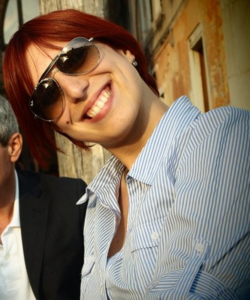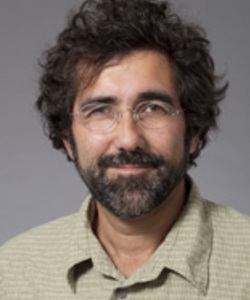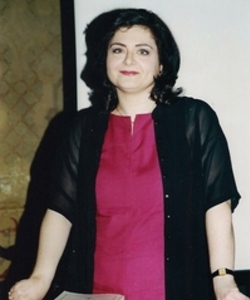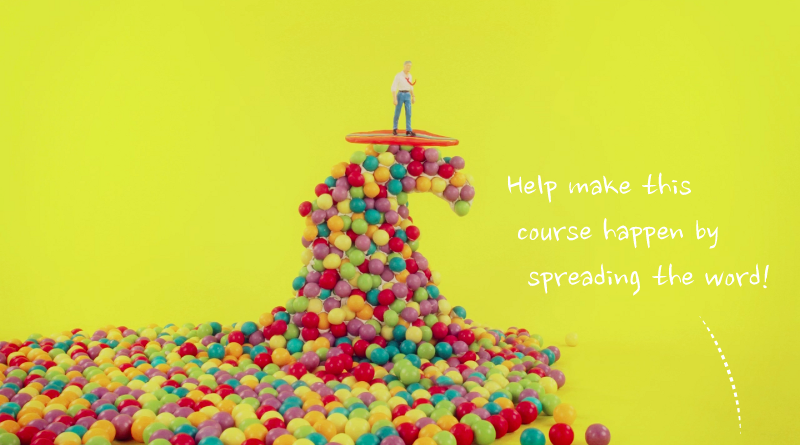Italy Today: a Girlfriend in a Coma? A Walk Through Today’s Italy
Alessandra Giglio, Francesco Caviglia and Vera Nigrisoli Wärnhjelm
Field/Discipline : Linguistics and Cultural Studies
Language : English; Italian (with English subtitles/translations)
Institution : University of Genova, Italy --- Dalarna University, Sweden, Aahrus University and Dalarna University
Description
Italy is not just pasta and pizza: Italy has an enormous heritage of art, literature and history, as well as a tradition of beautiful landscape, sweet climate and delicious food that are behind the Italian stereotype of "La dolce vita".
At the same time, a competing stereotype presents Italy as a hotbed of political intrigues, corruption, and cultural paralysis.
In a recent video (A. Piras, B. Elmott, Girlfriend in a Coma, 2013), Italy is compared to a wonderful girlfriend that is in a dreadful, comatose state. It is of an extraordinary importance that all those who love this country get to better understand the actual situation, so that they can help decide whether to wake her up, or let her sleep forever.
This course addresses all those who love Italy and wish to look beyond stereotypes to better grasp some of the contradictions that puzzles both Italians and foreign observers: citizens’ relationship to the state and to the community; the ideology of beauty; women’s peculiar status; North and South; family; morality; high and low culture; and the role of television in reflecting and creating changes in society in the last 50 years. We will observe these themes with a special focus on popular culture, by by analysing [and discussing] clips clips from fiction films, documentaries, advertising, songs.
Learning objectives
- Do Italians trust their TV and newspapers?
- Being an Italian woman: a gift or a curse?
- Is Gomorrah's writer Roberto Saviano a hero?
- Are Italians one people?
- Is Italy a secular State?
MOOC relevance
Italy is a popular destination for tourists from all over the world, attracted by its cultural treasures, its landscapes, its lifestyle. At the same time, modern Italy has been a laboratory for dramatic developments in politics and society: from civil war to the economic boom; from diffuse political engagement to widespread contempt for politics; videocracy, corruption and heroism; sexual liberation and religion’s comeback. Could Italy anticipate developments that we soon will observe in other countries?
This course is intended to be an open-air laboratory in which we will explore and talk out of some controversial cultural aspect of Italy -- and, consequently, of the whole humanity.
Every thematic unit will be developed starting from an issue, that will be investigated by workgroups, in order to dismantle stereotypical concepts that enforce Italy into its paralyzed coma.
Prior Knowledge
No prior knowledge is needed. When Italian language materials are used, they will be provided with English subtitles.
A basic skill to use ICT is required.
Tools
- Multiple Choice Test
- P2P-grading of assignments
- Discussions / Q&A
Additional tools
- wikis and collaborative documents
- web searching
Use of online-tools
- Wikis and collaborative documents will be the main tool for producing answers to the assignments, in order to develop a peer community that discusses and reflects onto the cultural promts given into the course. If possible, workgroups will be organized in German, Spanish, French, Italian -- instructors will be communicating in English.
- Information problem solving as a point of departure for exposing divisions among Italians.
References
Documentaries:
"Girlfriend In A Coma", 2013
"Italy: love it or leave it", 2012
"Il corpo delle donne", 2011
Books:
John Foot (2003). Modern Italy. New York: Palgrave Macmillan.
Mario B. Mignone (2008). Italy today. Facing the challenges of the new millennium. New York: Peter Lang.
Related Courses
-
 When African Americans Came to Paris
Dr. Bryan Carter
When African Americans Came to Paris
Dr. Bryan Carter
-
.jpg) English Phonetics and Phonology
Prof. Dr. Ilka Mindt
English Phonetics and Phonology
Prof. Dr. Ilka Mindt
-
.jpg) Intercultural Diversity Networking - Vielfalt interkulturell vernetzen.
Prof. Dr. Jürgen Bolten
Intercultural Diversity Networking - Vielfalt interkulturell vernetzen.
Prof. Dr. Jürgen Bolten
-
.jpg) The English Language: A Linguistic Introduction
Prof. Dr. Thomas Hoffmann
The English Language: A Linguistic Introduction
Prof. Dr. Thomas Hoffmann
-
.jpg) Business Englisch
Prof. Dr. Stephanie Swartz-Janat Makan
Business Englisch
Prof. Dr. Stephanie Swartz-Janat Makan
Alessandra Giglio (University of Genova, Italy --- Dalarna University, Sweden)

CV
Ph. D. at the University of Genova (Italy), she graduated at the same University and took a Masters in Teaching Italian as a Foreign Language. She teaches Italian language and culture in many institutions as the University of Genova (Italy), the University of Dalarna (Sweden) and the Saint Mary's College (USA) where she is currently developing an online teaching project.
She is currently focused on e-learning strategies and teaching Italian with ICT, as well as on linguistic and cultural phenomena of the Italian language.
Publications
A. Giglio, “’Racconto L2.0′: esercitare la produzione scritta in Rete”, in P. Alderete, L. Incalcaterra McLoughlin, L. Ní Dhonnchadha, D. Ní Uigín, Translation, Technology & Autonomy in Language Learning and Teaching, Labhaoise, Oxford: Peter Lang, 2012;
“Pizza, Spaghetti & Mandolino: Italian Stereotypes. Do You Know a Thing or Two about Italy?”, Sussex Coast College, Hastings UK; 2011
“Didattica 2.gioc0” Roundtable, “L’edutainment nella didattica delle lingue: nemico o alleato?”, University of Genoa, Italy, 2010;
NEMLA 2010 Conference, “L’italiano al computer: analisi dei corsi di lingua italiana per stranieri” in “Best New Practices in Teaching Italian With New Technology”, 2010, McGill University, Montréal, Quebéc, Canada;
Giglio A., “Scrittori, cuochi e fotografi per un giorno: il project work nella didattica dell’italiano a stranieri”, Rivista ITALS, anno VII, n. 21/2009; Guerra edizioni, 2009
Francesco Caviglia (Aahrus University)

CV
Born 1961 in Genoa (Italy). Has been a research fellow at the Institute for Educational Technology at the Italian National Research Council and a secondary school teacher. Has studied for a Ph.D. at the Faculty of Arts and is currently Associate Professor in Italian at the Department for Aesthetics and Communication, Aarhus University. Research interests in literacy and storytelling, seen from the perspective of an educational technologist who teaches contemporary Italian culture.
Publications
Caviglia, Francesco & Cecchini, Leonardo (accepted) Appropriarsi di un passato difficile. Appunti su una pubblicità FIAT. In Leonardo Cecchini & Hans Lauge Hansen (eds), Conflitti: Modelos narrativos de la memoria intergeneracional en España e Italia / Modelli narrativi della memoria intergenerazionale in Italia e Spagna. Etude Romanes, Vol. 62, Museum Tusculanums Forlag.
Caviglia, Francesco (2011). New media literacies for advanced foreign language learning and teaching. In Rita Cancino, Lotte Dam & Kirsten Jæger (eds), Policies, Principles, Practices: New Directions in Foreign Language Education in the Era of Educational Globalization. Cambridge: Cambridge Scholars Press.
Caviglia, Francesco & Cecchini, Leonardo (2011). Roberto Savianos "culture wars": notes on a literary quote. Paper presented at NORLIT 2011, Roskilde, Danmark.
Caviglia, Francesco & Cecchini, Leonardo (2009). Narrative Models of Political Violence: Vicarious Experience and 'Violentization' in 1970s Italy. In Pierpaolo Antonello & Alan O'Leary (eds), Imagining Terrorism. The Rhetoric and Representation of Political Violence in Italy 1969-2009. Italian Perspectives nr. 18, Vol. 18, pp. 139-152.
Caviglia, Francesco & Ferraris, Maria (2008).The Web as a learning environment: Focus on contents vs. focus on the search process. In Michael Kendall & Brian Samways (eds), Learning to Live in the Knowledge Society. Boston: Springer Science+Business Media B.V., pp. 175-178.
Vera Nigrisoli Wärnhjelm (Dalarna University)

CV
Vera Nigrisoli Wärnhjelm has studied for a Ph.D. in Italian at the University of Stockholm with a final thesis (2000) on Italian Philology [Supervisor Professor J. Nystedt, Discussant Prof.Alfredo Stussi, Scuola Normale Superiore, Pisa (Italy)].
Previously, she won an Italian Foreign Ministry's one-year research fellowship at the Faculty of Humanities, University of Leningrad, USSR (Russia); she earned a Bachelor's Degree in Foreign Languages – Russian, at the University of Macerata (Italy).
After working at the Italian Cultural Institute of Stockholm, she is currently an Appointed Senior Lecture in Italian. From 2006, she is also Head of the Department for Italian studies at the University of Dalarna.
Publications
"Lettere dalla Svezia. Il capitano Lorenzo Adami alla regina Cristina e al cardinale Azzolino. 1665". ("Letters from Sweden. Captain Lorenzo Adami to Queen Christine of Sweden and Cardinal Azzolino. 1665"). Ph.D. thesis in Italian Philology,Forskningsrapporter – Cahiers de la Recherche 14. G. Engwall & J.Nystedt (red.), Institutionen för franska och italienska, Stockholmsuniversitet (Sweden), 210 pages, 2000
“Medicina e medici di corte in Svezia in età moderna: luoghi e itinerari formativi” ("Medicine and court doctors in Sweden in modern times:places and educational journeys"), in
La formazione del medico in età moderna(secc. XVI-XVIII), (eds. R. Sani & F. Zurlini), Macerata: EUM, 2012“L’insegnamento online delle lingue all’Università del Dalarna (Svezia). Esperienze di collaborazione internazionale e prospettive future. ("Foreign language online teaching at Dalarna University (Sweden). International cooperative experience and future perspectives”(with Daniela Forapani), in VII Congresso AICLU; Multilinguismo, CLIL eInnovazione didattica - 7. AICLU-Tagung, Mehrsprachigkeit, CLIL undInnovation der Didaktik, (eds. Maurizio Gotti & Christoph Nickenig),Bozen-Bolzano University Press, pp. 201-218), 2012
“Il viaggio in Scandinavia di un rappresentante della casa d’Este nel Seicento” ("A travel of a member from Este's family in Scandinavia"), in Settentrione, Nuova Serie, nr. 11, 1999, Turku (Finland)pp. 112-127, 2000
